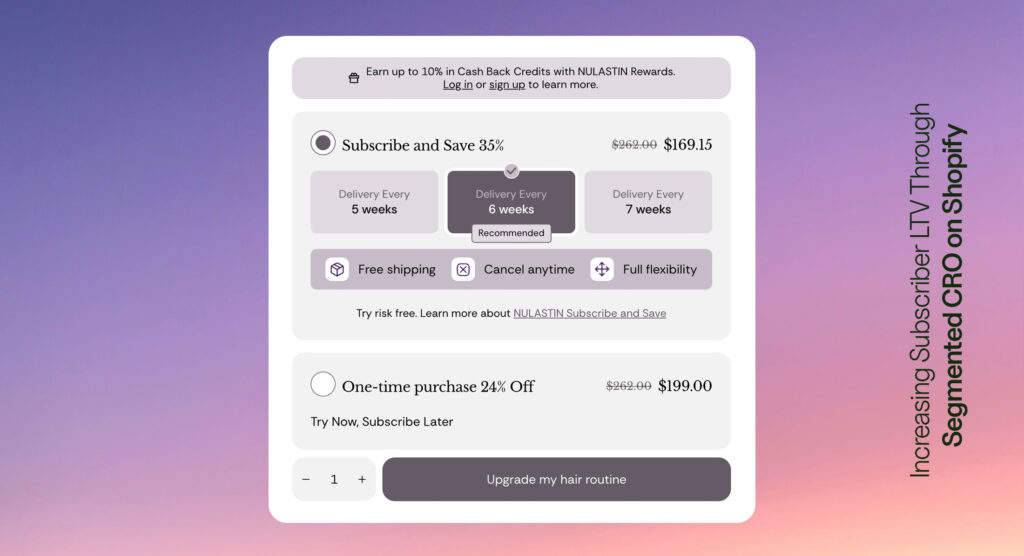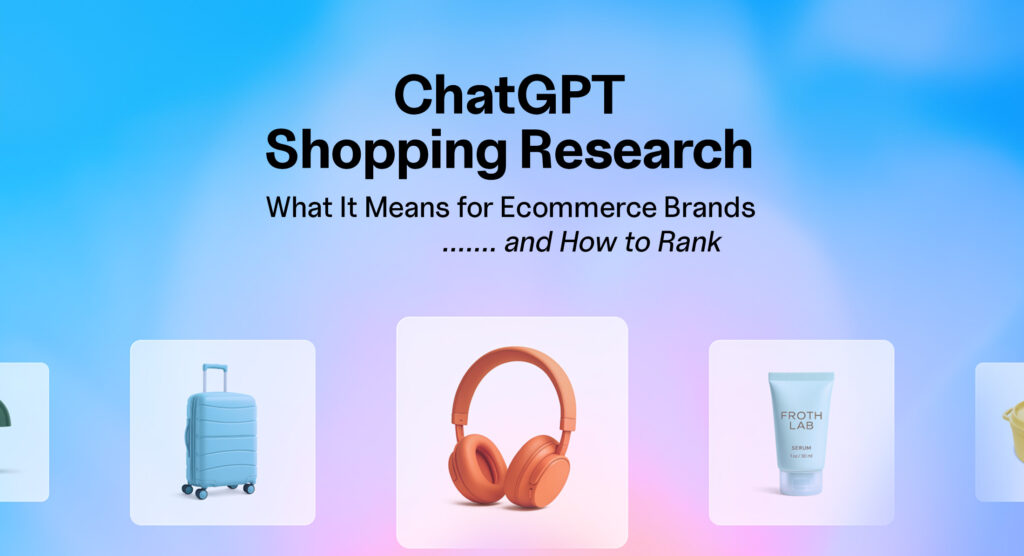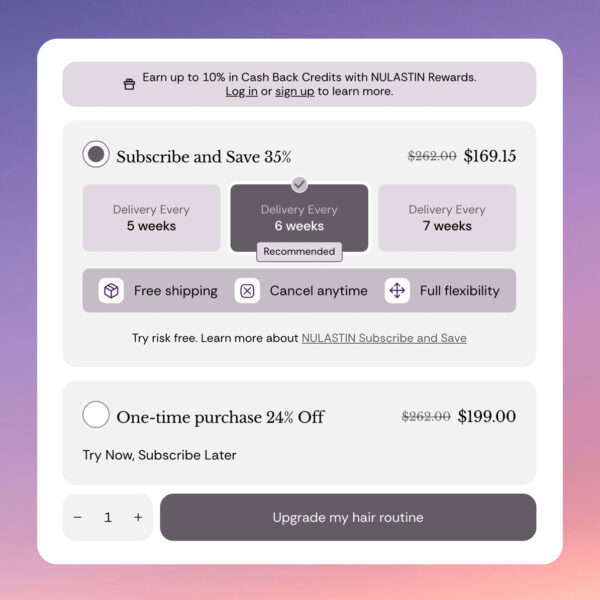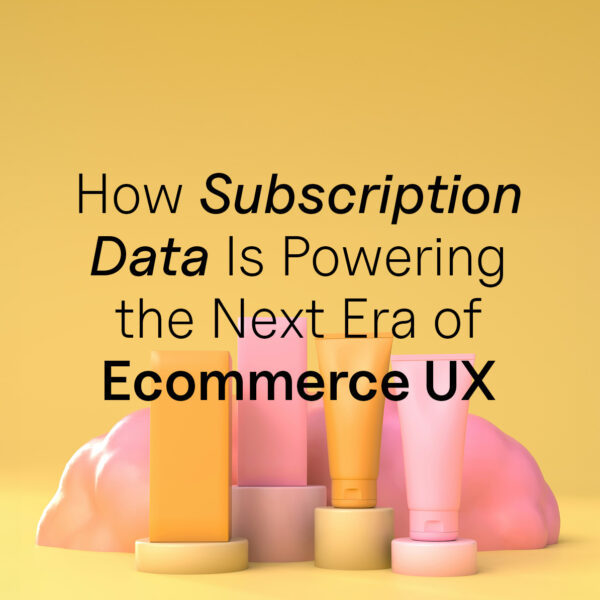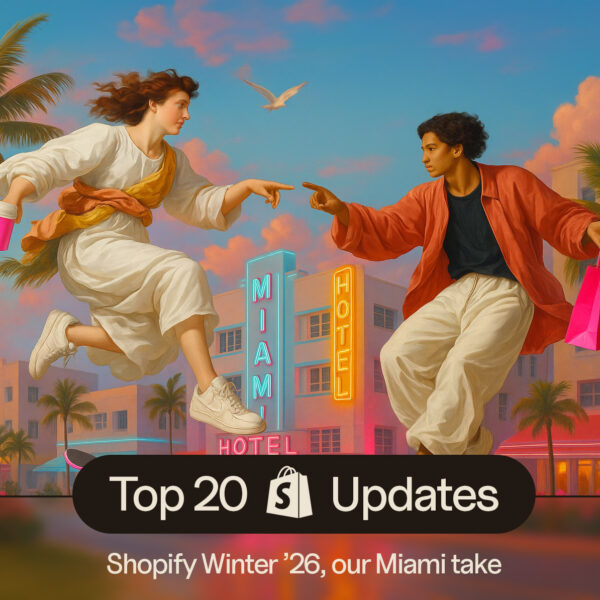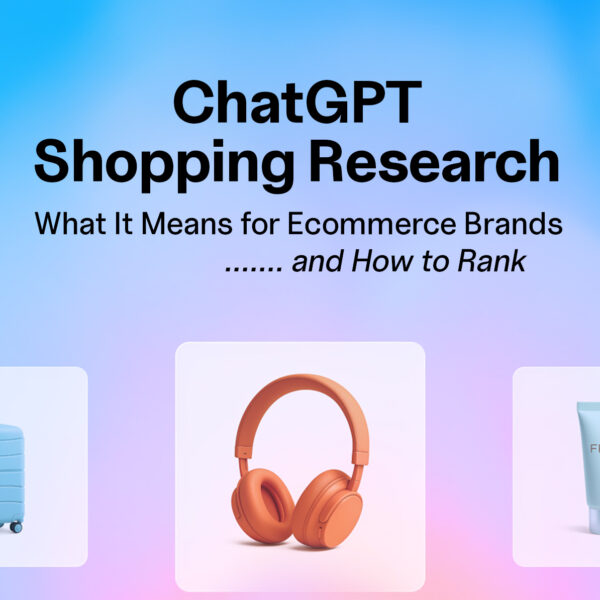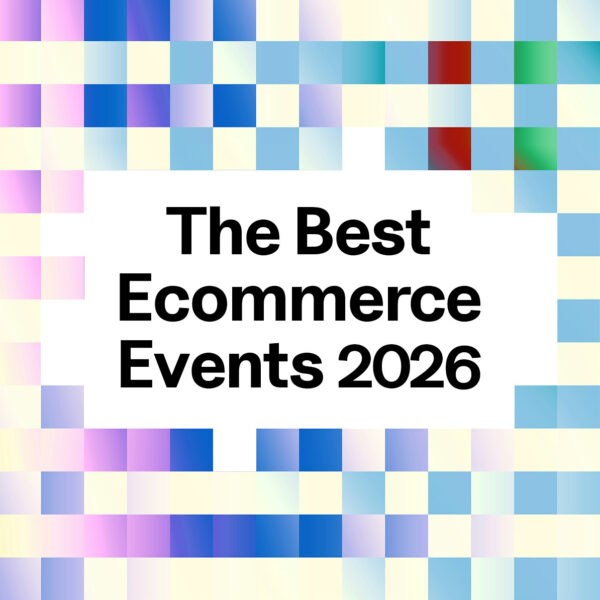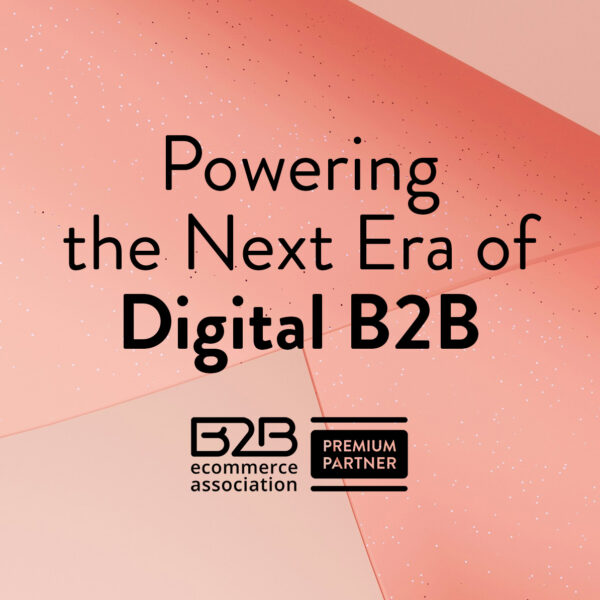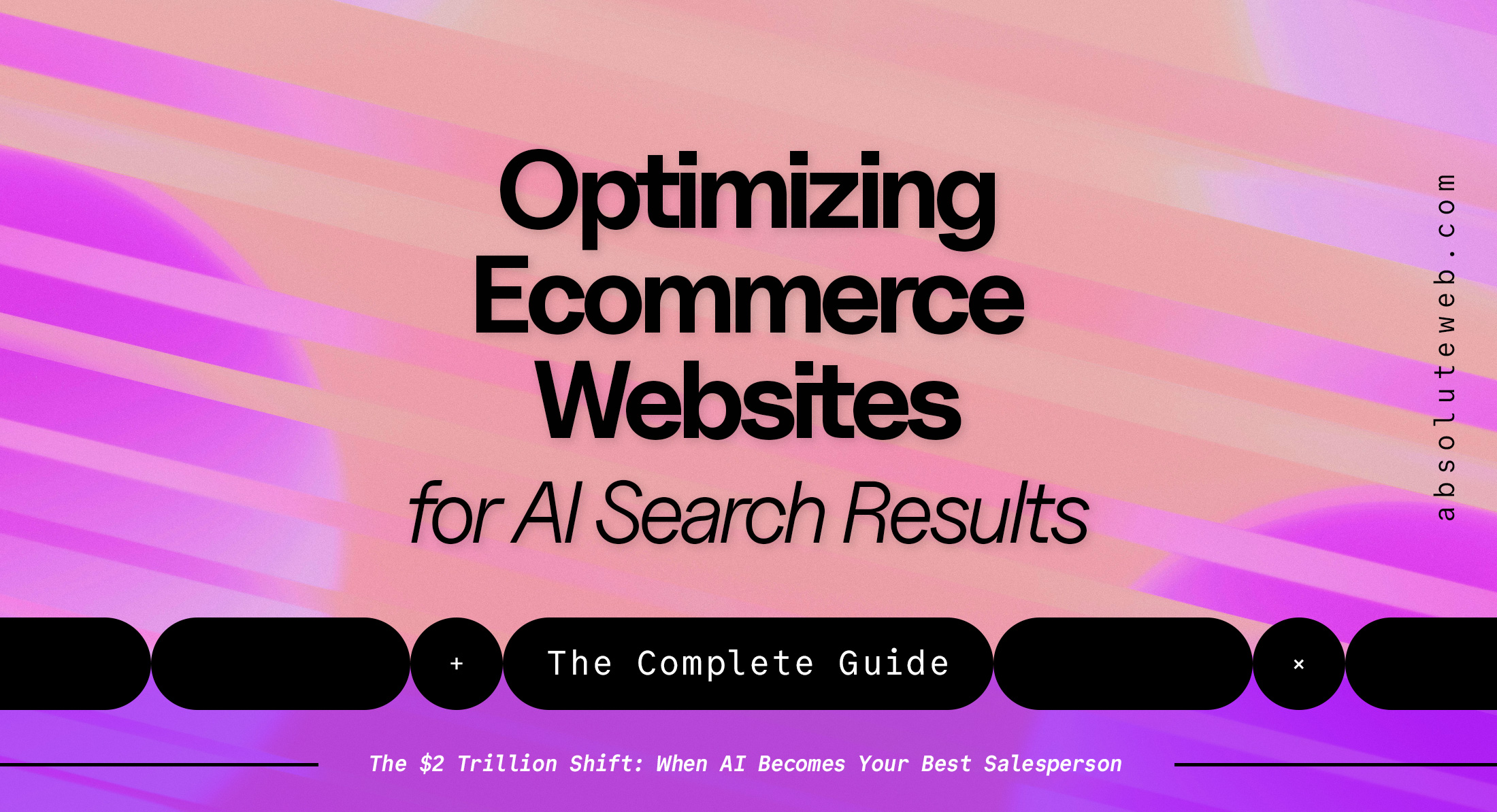
Optimizing Ecommerce Websites for AI Search Results: The Complete Guide
Search is getting a makeover. By 2026, more people will be turning to ChatGPT, Perplexity, and Gemini for shopping advice than clicking ads or scrolling through endless category pages.
Just imagine someone typing into ChatGPT:
“What’s the best carry-on suitcase under $300 that fits Delta’s size requirements and rolls smoothly over cobblestones?”
It’s not going to Google anymore. AI handles it now. And the recommendation you get doesn’t depend on ad dollars or SEO tricks – it comes straight from actual user ratings and nitty-gritty details that matter. The answer just cuts to what actually solves your problem.
This is happening constantly, everywhere. Millions of these conversations, shifting the way people find things online. In 2025, six out of ten people looking to shop online will have some AI tool doing their research, while 46% rely on them for recommendations. Unlike Google’s ad-heavy results, AI platforms like ChatGPT, Gemini, and Perplexity make recommendations based purely on relevance and credibility.
If you run an ecommerce brand, this isn’t just another passing trend. It might be the biggest shake-up in how people find and choose products since Google took over, and it’s not slowing down.
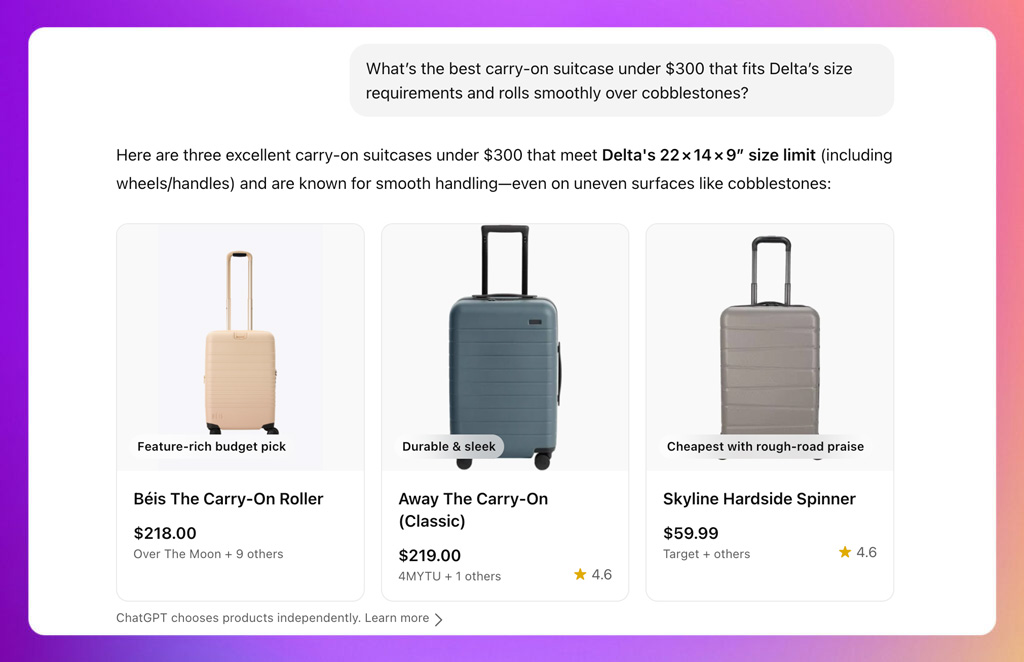
The New Rules of Discovery: How AI Chooses Winners
Traditional SEO optimizes for keyword queries. AI search optimizes for contextual intent. It doesn’t rank results – it reasons them. Instead of presenting a list of blue links, AI generates a single or short list of best-fit answers based on the full query and real-world signals. It’s less like a search engine and more like a knowledgeable friend who’s done extensive research.
That means AI prioritizes:
- Structured, machine-readable product data
- Trust signals from third-party sources (e.g., Reddit, News, Reviews)
- Content that mirrors how humans ask and decide
The rules of relevance have changed. If your site isn’t built for AI parsing and decision-making, it will be invisible to the next generation of product discovery.
Consider how AI handles a query like “best running shoes for flat feet.” Instead of matching keywords, it understands the biomechanical problem, evaluates solution criteria, and recommends products based on features that actually address overpronation. The brands that get recommended aren’t necessarily the ones with the biggest SEO budgets – they’re the ones with the best combination of product quality, clear information architecture, and authentic social proof.
Key Insight for Business Owners: This creates unprecedented opportunities for smaller brands with superior products to compete against established players. But it also raises the bar significantly for how brands present their products online.
Understanding AI Search Ranking Signals
AI search engines optimize for fundamentally different signals than traditional search:
- Intent-Driven Relevance: Rather than matching keywords, AI platforms analyze whether your content genuinely answers user questions and solves real problems. They understand nuance, context, and conversational queries.
- Authority and Credibility: External citations, mentions in trusted publications, expert reviews, and first-party research carry significant weight. AI systems are designed to identify and prioritize authoritative sources.
- Structured Understanding: Schema markup, organized product data, and clear information hierarchies help AI systems understand and recommend your products accurately.
- User Experience Signals: While not directly ranking factors, poor user experience leads to high bounce rates = low engagement, which AI systems can detect and factor into their recommendations.
Building the Foundation: Technical Architecture for AI Discovery
The first step in AI search optimization isn’t content creation – it’s ensuring AI systems can actually find and understand your products. Most ecommerce sites inadvertently block the crawlers that power AI search results.
Let LLMs Crawl Your Site
Most LLMs rely on crawling engines (like OpenAI’s, Googlebot, Bingbot).
Make sure you explicitly allow them:
User-agent: OAI-SearchBot
Allow: /
User-agent: GoogleBot
Allow: /
User-agent: BingBot
Allow: /
This seemingly minor technical change unlocks access to ChatGPT’s 100+ million weekly users. Beyond ChatGPT, ensure your site remains accessible to GoogleBot and BingBot, as other AI systems often rely on these indexes for their knowledge base.
Verification Checklist:
- Check your robots.txt file for any blocks against OAI-SearchBot
- Verify your site appears in both Google and Bing search results using
site:yourdomain.com - Ensure your XML sitemap is accessible and current
- Test crawlability using Google Search Console and Bing Webmaster Tools
The Direct Line: Product Feed Submission
Perhaps the most significant development in AI search is OpenAI’s direct product feed program. Instead of hoping their crawler finds and correctly interprets your products, you can submit structured product data directly to ChatGPT.
The feed format is straightforward but requires precision:
{ "product_id": "ultralight-backpack-40l", "name": "Summit Ultralight 40L Backpack", "price": 299.99, "currency": "USD", "image_url": "https://example.com/backpack.jpg", "product_url": "https://example.com/backpack?utm_source=chatgpt.com", "description": "Sub-2lb backpack tested on PCT, Appalachian Trail", "category": "Outdoor/Backpacking/Ultralight", "availability": "in_stock", "rating": 4.8, "review_count": 456 }
Action Item: Join OpenAI’s merchant program early to gain a first-mover advantage. The application process is currently by invitation, but expressing interest through their merchant portal positions you for priority access.
Speaking AI’s Language: Advanced Schema Implementation
AI systems parse structured data more thoroughly than traditional search engines. While basic schema markup might suffice for Google, AI search demands comprehensive, accurate structured data across all product attributes.
Essential Schema Types:
- Product schema for basic product information
- Offer schema for pricing and availability
- Review schema for social proof and ratings
- Organization schema for brand credibility
Complete Product Schema Example:
{
"@context": "https://schema.org/",
"@type": "Product",
"name": "Merino Wool Base Layer - Long Sleeve",
"description": "Premium merino wool base layer for outdoor activities",
"brand": {
"@type": "Brand",
"name": "Mountain Pro"
},
"image": ["https://example.com/baselayer-main.jpg"],
"offers": {
"@type": "Offer",
"url": "https://example.com/baselayer",
"priceCurrency": "USD",
"price": "89.99",
"availability": "https://schema.org/InStock",
"seller": {
"@type": "Organization",
"name": "Mountain Pro Store"
}
},
"aggregateRating": {
"@type": "AggregateRating",
"ratingValue": "4.7",
"reviewCount": "289"
},
"additionalProperty": [
{
"@type": "PropertyValue",
"name": "Material",
"value": "100% Merino Wool"
},
{
"@type": "PropertyValue",
"name": "Weight",
"value": "185gsm"
},
{
"@type": "PropertyValue",
"name": "Origin",
"value": "New Zealand"
},
{
"@type": "PropertyValue",
"name": "Certification",
"value": "RWS Certified"
}
]
}Validation and Maintenance:
- Use Google’s Rich Results Test for validation
- Implement automated schema testing in your deployment pipeline
- Regular audits to ensure schema accuracy and completeness
- Monitor for schema errors in Google Search Console
Content Strategy: Becoming the Source AI Trusts
AI doesn’t think in keywords. It thinks in questions, trade-offs, and decision-making logic.
The brands that consistently appear in AI recommendations share a common trait: they’ve become authoritative sources of information in their categories. They don’t just sell products – they educate customers and solve problems.
The Problem-Solution Content Framework
AI excels at matching user problems to solutions, which means content must be structured around genuine customer challenges. Instead of writing “The Best Hiking Boots,” successful brands create “How to Choose Hiking Boots That Won’t Give You Blisters on Long Trails.”
This approach works because it mirrors how people actually interact with AI. They don’t search for “hiking boots” – they ask, “What kind of boots should I get for a 100-mile backpacking trip if I have wide feet and tend to get hot spots?”
The Problem-Solution Structure:
- Define the Specific Problem: Use technical accuracy to establish the challenge
- Establish Solution Criteria: Base recommendations on real-world constraints
- Integrate Product Recommendations: Present products as natural solutions
- Provide Specific Use Cases: Help customers self-select the right option
Example Implementation:
Query: “Best coffee makers under $300 for small apartments”
Content Structure:
Small Apartment Coffee Makers Under $300 (2025 Testing Results) SPACE REQUIREMENTS ANALYSIS: - Counter depth under 12": Nespresso Vertuo Next (11.1" deep) - Counter depth 12-15": Breville Bambino Plus (12.7" deep) - Counter depth 15"+: Technivorm Moccamaster (13.8" deep) DAILY USAGE PATTERNS: - Single person, 1-2 cups: Pod-based systems - Couple, 2-4 cups daily: Small drip makers - Entertaining occasionally: Combination espresso/drip TESTED WINNER BY CATEGORY: - Best Overall: Breville Bambino Plus ($249) * 19-bar pressure extraction * 3-second heat-up time * Footprint: 7.5" W x 12.7" D * Tested with 47 different coffee types
Include Real-World Use Cases
Don’t just list specs. Explain when and why a product is ideal:
“For families flying Delta with toddlers, this carry-on fits overhead bins, weighs under 6 lbs, and has soft wheels that glide over brick sidewalks in Paris.”
LLMs love this kind of situational reasoning.
Avoid Over-Optimized Copy
AI can sniff out fluff. Avoid SEO filler and fake superlatives. Be specific:
- ❌ “This amazing backpack is perfect for anyone.”
- ✅ “At 1.9 lbs and 40L, it’s ideal for ultralight thru-hikers covering 20+ miles/day.”
Compare Honestly
AI platforms often reference comparison content when making recommendations, but they tend to favor comparisons that acknowledge trade-offs honestly rather than promoting a single “winner.”
The most AI-friendly comparisons present data objectively, admit when competitors have advantages, and help users understand which product suits their specific situation.
Example Comparison Template:
Wireless vs. Wired Gaming Headsets: Performance Analysis
LATENCY TESTING:
– Wireless (2.4GHz): 2.4ms average latency
– Wireless (Bluetooth): 34ms average latency
– Wired (3.5mm): 0.8ms average latency
BATTERY CONSIDERATIONS:
– SteelSeries Arctis 7P: 24 hours continuous use
– Razer BlackShark V2 Pro: 16 hours with RGB on
– Wired alternatives: No battery concerns
RECOMMENDATION BY USE CASE:
– Competitive gaming: Wired (latency advantage)
– Console gaming from couch: Wireless 2.4GHz
– Multi-device switching: Bluetooth with low-latency codec
Building Expert Authority Through Specificity
AI systems heavily weigh expert opinions, but they can distinguish between genuine expertise and marketing fluff. The brands that get recommended most often have developed quotable, data-backed positions on industry topics.
Instead of generic statements like “quality matters in outdoor gear,” successful brands develop specific expertise: “After testing 247 hiking boots over 18 months, we found that boots under $150 had a 73% higher blister rate in the first 50 miles versus boots over $200. The difference comes down to heel cup construction and toe box materials.”
This level of specificity signals expertise to AI systems while providing the kind of detailed information customers actually need to make informed decisions.
Authority in the Age of AI: Beyond Traditional Link Building
Building authority for AI search requires a fundamentally different approach than traditional SEO. AI systems don’t just count backlinks – they evaluate the quality of sources, the specificity of expertise, and the authenticity of social proof.
The New PR Strategy: Becoming the Go-To Source
The brands that appear most frequently in AI recommendations have systematically positioned themselves as authoritative sources in industry publications. This isn’t traditional PR focused on brand mentions – it’s about becoming the expert journalists call when they need specific data or technical insights.
Community Engagement That Actually Matters
AI systems increasingly pull information from community discussions, particularly Reddit. The brands that succeed in this environment participate authentically in relevant communities, sharing expertise without overtly promoting products.
Target Subreddits by Industry:
- r/BuyItForLife (durability-focused products)
- r/malefashionadvice (menswear)
- r/SkincareAddiction (beauty/skincare)
- and so on…
Engagement Strategy:
- Answer specific questions with detailed explanations
- Share test results and comparisons
- Admit when competitors have advantages
- Never directly promote products; focus on education
Appear in Trusted Sources
Target publications where your customers actually read about your product category:
- Fitness Equipment: Men’s Health, Outside Magazine, Runner’s World
- Tech Products: CNET, The Verge, Wired
- Home Goods: Good Housekeeping, Better Homes & Gardens, This Old House
… you got the idea.
Generate Data Worth Quoting
Conduct mini-studies or publish test results:
“In testing 12 water bottles over 60 days, we found steel retained temperature 40% longer than plastic.”
This type of content earns citations, which in turn feed AI models.
Encourage Long-Form Reviews
Customer reviews aren’t just social proof – they’re training data for AI systems. The brands with the most detailed, specific reviews tend to get recommended more frequently because AI can extract and synthesize information about real-world performance.
This means actively encouraging customers to share specific use cases and outcomes rather than generic five-star ratings.
A camping gear company might follow up with customers 30 days post-purchase: “How did your tent perform on your recent trip? Any specific conditions or challenges worth noting?”
These detailed reviews become valuable data points for AI recommendations.
Platform-Specific Mastery: Optimizing for Each AI Ecosystem
While the fundamental principles of AI search optimization remain consistent, each platform has distinct preferences and requirements.
ChatGPT: The Conversationalist’s Choice
ChatGPT favors comprehensive, step-by-step explanations with specific examples. Content that performs well tends to be 800-1200 words for pillar pieces, structured as natural conversations rather than keyword-optimized articles.
Google Gemini: The Shopping Integration
Gemini’s integration with Google’s shopping ecosystem means success requires excellence across multiple Google properties. Products must be accurately represented in Google Merchant Center with high-quality images, current pricing, and detailed attributes.
Merchant Center Requirements:
- Product data must match the website exactly
- Image requirements: 800x800px minimum, white background preferred
- Update inventory daily (out-of-stock products get deprioritized)
- Include additional product properties for better AI understanding
Gemini-Specific Schema Enhancement:
"additionalProperty": [{
"@type": "PropertyValue",
"name": "Material",
"value": "100% Merino Wool"
}, {
"@type": "PropertyValue",
"name": "Care Instructions",
"value": "Machine wash cold, hang dry"
}, {
"@type": "PropertyValue",
"name": "Sustainability",
"value": "RWS Certified Wool"
}]Perplexity: The Citation Champion
Perplexity heavily weights recent content and authoritative citations. Success on this platform requires regularly publishing fresh, well-sourced content with links to primary research and studies.
Optimization Tactics:
- Publish fresh content monthly with clear publication dates
- Include citations to primary sources and studies
- Use specific statistics with sources
- Focus on Q&A style blog content with external references
- Develop original research and industry surveys
The platform’s citation-heavy approach enables brands to benefit from creating content that serves as source material for other content creators.
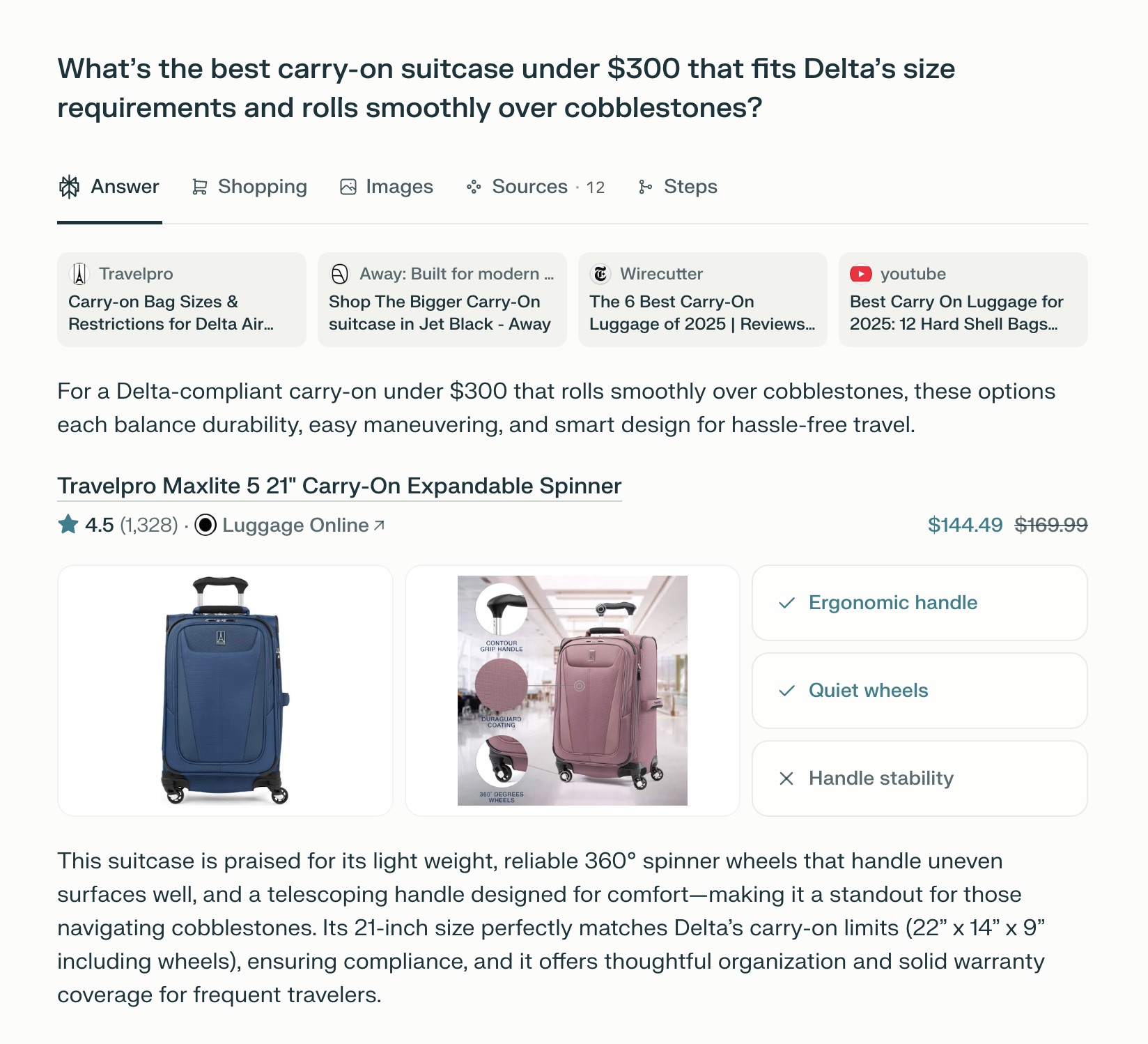
Implementation Roadmap: From Strategy to Results
The most successful AI search optimization follows a systematic approach that builds capability over time rather than seeking immediate wins.
Phase One: Technical Foundation
Crawlability Setup
- Update robots.txt to allow OAI-SearchBot
- Verify site indexing in Google and Bing
- Set up UTM tracking for AI sources
- Join the OpenAI merchant waitlist
Schema Implementation
- Audit schema markup on the top 20 product pages
- Implement a comprehensive Product, Offer, and Review schema
- Validate schema using Google Rich Results Test
- Set up automated schema monitoring
Technical Foundation Checklist:
- Crawlability: Allow OAI-SearchBot and verify indexing
- Site Structure: Clear, logical navigation and URL structure
- Performance: Fast loading times (<3 seconds) and mobile optimization
- HTTPS: Secure connections across all pages
- Schema: Comprehensive markup validation and monitoring
Phase Two: Content Development
Problem-Solution Content
- Identify the top 10 customer questions from support tickets and sales conversations
- Create comprehensive problem-solution content for each question
- Develop 3 detailed buyer’s guides with specific criteria and testing data
- Optimize existing product descriptions for conversational queries
Authority Building Content
- Create comparison content with honest trade-offs
- Develop expert content with quotable, data-backed positions
- Launch a customer review collection campaign for detailed feedback
- Build relationships with industry publications
Content Strategy Checklist:
- Problem-Solving Content: Comprehensive guides answering specific questions
- Conversational Optimization: Natural language matching user queries
- Product Integration: Natural recommendations within educational content
- Expert Authority: Data-backed positions and quotable expertise
- Comparison Content: Honest trade-offs and use-case recommendations
Phase Three: Authority & Optimization
External Authority
- Pitch 3 industry publications with original research
- Establish an authentic presence on 2 relevant Reddit communities
- Secure first media mention or expert quote
- Build relationships with industry influencers
Platform Optimization
- Submit product feed to OpenAI (when available)
- Optimize Google Merchant Center for Gemini
- Create citation-friendly content for Perplexity
- Develop platform-specific content strategies
Performance Optimization
- Analyze AI traffic patterns and behavior
- A/B test highest-performing AI content
- Refine schema implementation based on performance data
- Scale successful content types and topics
Authority Building Checklist:
- Media Coverage: Mentions in industry publications and mainstream media
- Expert Relationships: Connections with influencers and thought leaders
- Original Research: Industry reports, studies, and proprietary data
- Quality Backlinks: Authoritative links from relevant sources
- Social Proof: Reviews, testimonials, and expert endorsements
The Competitive Advantage of Early Action
AI search optimization resembles SEO in its early days – early movers gain disproportionate advantages that become harder for competitors to overcome over time. Brands that invest in AI search optimization now will establish authority and visibility that compound as adoption grows.
Why Act Now
First-Mover Benefits:
- Establish authority before competitors recognize the opportunity
- Build relationships with emerging AI platforms while they’re accessible
- Capture market share during the transition period
- Develop internal expertise while talent is available
- Create content libraries that serve as AI training data
The Network Effect: As more users rely on AI for product discovery, the brands that appear consistently in AI recommendations gain exponential visibility advantages. Early authority building creates a flywheel effect where recommendations lead to more reviews, citations, and social proof, which lead to more recommendations.
Market Share Implications: The transformation isn’t coming – it’s here. Brands that delay AI search optimization risk losing market share to competitors who understand and act on this shift. The window for gaining a first-mover advantage is closing rapidly as awareness grows.
Conclusion: The Future of Ecommerce Discovery
The transformation of search from keyword-based to conversational AI-driven discovery is one of the most significant shifts in digital marketing. The question isn’t whether AI will reshape product discovery – it has already done so. The question is whether your brand will be positioned to benefit from this transformation.
AI won’t crawl your site and wait for someone to click. It will summarize you. Represent you. Recommend you, or ignore you.
That means the goal is no longer just “ranking.” It’s a reasoning inclusion. You need to be so clear, trustworthy, and useful that an AI assistant feels confident placing your product in a top 1–3 shortlist.
The ecommerce brands that act now will dominate AI search – and be first in line for the $2 trillion+ in sales it will direct by 2030.
Will your brand be recommended – or forgotten?
More Articles
How Strategic CRO Helped Nulastin Increase Subscriber ...
Subscription brands don’t win by chasing one-time conversions. They win…
Read more
EEE Miami 2026: The Conference That’s Redefining ...
If you’ve been in ecommerce long enough, you know most…
Read more
How Subscription Data Is Powering the Next ...
Ecommerce UX has traditionally been built around a single moment:…
Read more
Top 20 Shopify Winter ’26 Updates Every ...
Our strategic take on the most important changes from Shopify’s…
Read more
ChatGPT Shopping Research: What It Means for ...
OpenAI just released ChatGPT Shopping Research, and it’s quietly becoming…
Read more
The Best Ecommerce Conferences and Marketing Events ...
Your guide to the most impactful, innovative, and ROI-positive events…
Read more
Powering the Next Era of Digital B2B: ...
Miami-based digital commerce agency Absolute Web has officially joined the…
Read more
OpenAI’s Atlas Browser Is About to Rewrite ...
OpenAI has officially unveiled ChatGPT Atlas, a new AI-powered web…
Read more
Social Feed
